The Rights and Wrongs of Security Cameras
Along with providing a clean, habitable living environment for their tenants, a property owner must also provide an equally safe place for them to enjoy their lives. Although some tenants do not like the idea of cameras recording their comings and goings, there is legal justification for putting surveillance cameras in common areas because landlords must provide tenants with a secure place to live.
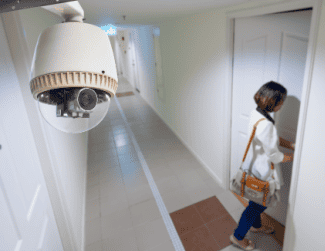 For many tenants, the presence of security cameras is reassuring. Cameras indicate that the landlord or property management company takes security seriously. They also ensure that management has a way to follow up on reports of suspicious people or activities.
For many tenants, the presence of security cameras is reassuring. Cameras indicate that the landlord or property management company takes security seriously. They also ensure that management has a way to follow up on reports of suspicious people or activities.
Package theft is an increasingly prevalent crime, especially since so many people became delivery enthusiasts during the pandemic. Packages sitting in front of someone’s door are ripe for the picking by passersby. With strategically placed cameras, these thieves can be identified and apprehended.
In addition to setting up cameras in the usual outdoor places, such as by entries and exits, cameras should be installed in garages, parking lots, laundry areas and other common spaces. Cameras can also be legally placed to monitor activities in the outdoor areas, including the front and back door, driveway and back yard. Essentially, any space that could be considered “public” can be monitored.
Security camera laws landlords must follow
Most states and municipalities have laws governing a resident’s right to privacy and the use of security cameras by landlords. For example, Florida law says that you cannot legally install cameras in any area with an expectation of privacy or where tenants would be in a state of undress.
For instance, you could place a camera on the outside of a building that points to the public parking lot of a swimming pool shower house. But you cannot place the camera inside the shower house because people have a reasonable expectation of privacy when they bathe or use the bathroom. Similarly, you could put a security camera in the lobby of a condo complex, but not in the building’s bathrooms for the same reason.
Referred to as the Florida Video Voyeurism law, Section 810.14 of the Florida Statutes states that when you place cameras on the exterior or interior of a building, you must ensure that their placement does not adversely affect the privacy of any individual. You can only set the cameras to view the public area and must make sure that the camera does not intrude on the interior of any person’s private residence or means of transportation, such as their car, truck, SUV, or RV.
In Prince George’s County, MD, the County Council passed a bill in October 2023 that mandates owners of high-occupancy buildings and age-restricted senior residences must install video surveillance systems on their rental properties. Under this new regulation, property owners must set up surveillance cameras in various areas, including parking lots, sidewalks, and trash enclosures. They must also retain the recorded video feed for at least 30 days.
California Penal Code §647 makes it illegal to conceal a surveillance camera to “secretly videotape and view the body of, or the undergarments worn by, another person without consent.” Further, if the apartment video cameras record sound, California does not permit audio recordings unless all parties consent to be recorded. And even if tenants agree to audio recording in their lease agreements, those recording devices and the surveillance equipment cannot be in areas where tenants can reasonably expect privacy. Apartment security camera laws in California allow CCTV or an indoor camera near entrances and exits of an apartment building but not inside an apartment.
In Massachusetts, you may not legally audio record anyone without their consent, according to MGL c. 272 s. 99, the so-called wiretap law. Massachusetts law requires all recorded parties to consent to being recorded. For video recording, a notice or sign in common areas suffices to inform people that they are being video recorded or surveilled. But in the case of audio, you have to go further than just a sign or notice by receiving their personal consent to being audio recorded.
Need Legal Help?
Chat with a real estate lawyer near you. It’s only $5 for a 1-week trial. Ask unlimited questions.
Security camera laws tenants must follow
A tenant has the right to install security cameras on the property they are renting without asking their landlord for permission. Just like landlords, they are required to follow specific laws governing the use of those cameras.
For instance, the U.S. Supreme Court held that “tenants are generally entitled to use exterior parts and general parts of a rented building to install their own security equipment provided that they have a legitimate interest, the building is not damaged and the other residents are not disturbed or impaired in their interests.”
The renter’s security cameras cannot violate another tenant’s reasonable expectation of privacy. This would include the same private areas where the landlord may not install their surveillance cameras, such as bathrooms, changing areas, bedrooms and anywhere else where a person might get undressed. Also, cameras placed in hallways or staircases to track the activities of the other tenants are not allowed.
Tenants may install a WiFi camera system that doesn’t require any drilling or wiring as long as the installation doesn’t impact the expectation of privacy for neighbors or roommates. However, if the tenant wants to install a hard-wired system, purchase security cameras that are professionally installed, or contract with an alarm service, they’ll need advance permission from their landlord.
Renters are advised to check their rental agreement before installing cameras to ensure they are not accidentally violating any privacy or maintenance terms. Their apartment complex might require permission if the tenant is drilling holes, working with electrical wiring or installing security cameras on their apartment’s exterior.
It’s especially important for the tenant to ask for written permission before installing a video doorbell. If the camera faces another unit, it may impinge on the neighbor’s right to privacy and cause the tenant’s security deposit to be withheld by their landlord.
Conclusion
The importance of security cameras to safeguard residents is generally accepted. However, both the landlord and the tenant must be aware of their state and local laws governing a person’s expectation of personal safety in their home. A quick call to the office of their District Attorney should provide them with the local laws regulating surveillance equipment.
Disclaimer: Nothing contained on this website constitutes tax, legal, insurance or investment advice, nor does it constitute a solicitation or an offer to buy or sell any security or other financial instrument. AAOA recommends you consult with a financial advisor, tax specialist, attorney or other specialist who is able to properly advise you.

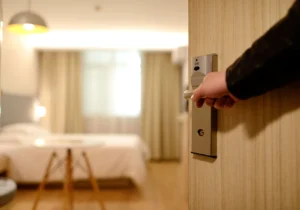
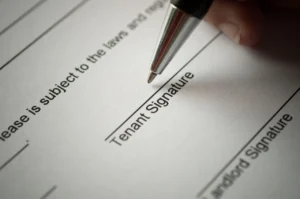


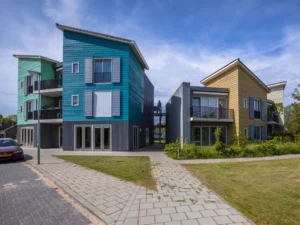
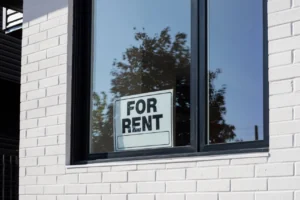
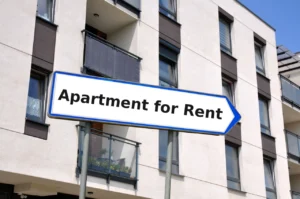





 Accessibility
Accessibility